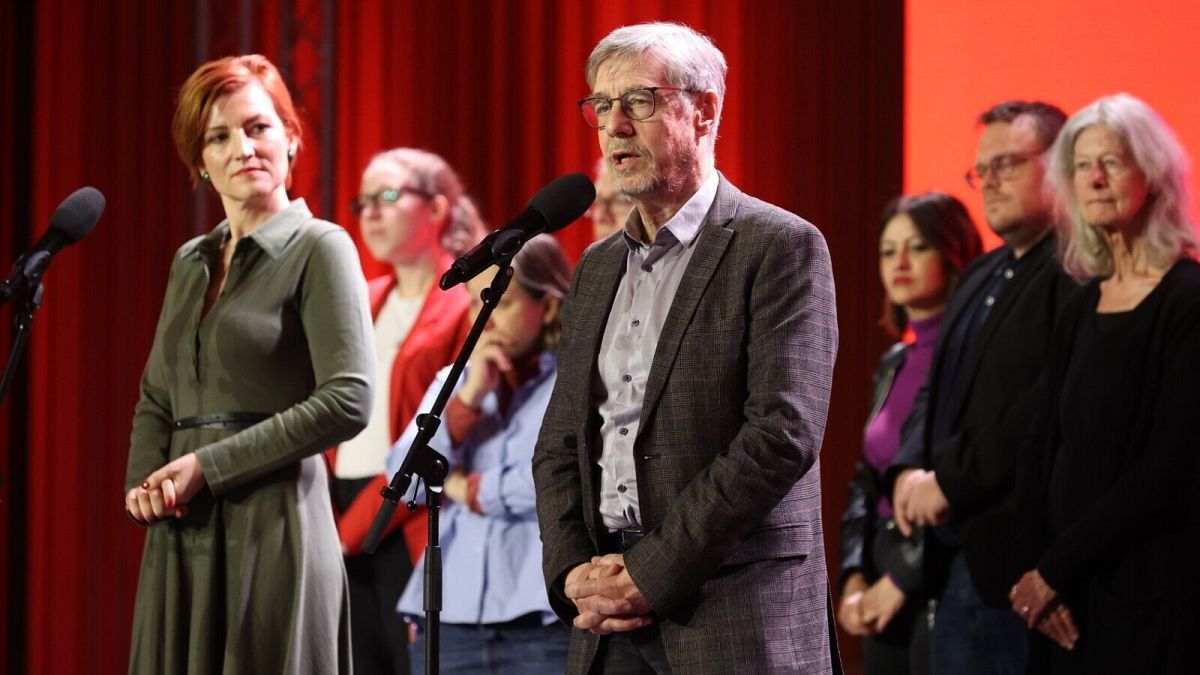The lead candidate for The Left, Walter Baier, has expressed concern over the increasing normalization of far-right discourse on migration by established political parties. He specifically called out outgoing Commission president Ursula von der Leyen for her willingness to partner with hard-line right-wing parties following the European elections. Baier criticized von der Leyen for abandoning the principle of maintaining a firewall between mainstream parties and far-right partners. This shift in stance has been attributed to mainstream parties’ fear of confronting extremists, leading to a surge in support for far-right parties.
Von der Leyen’s openness to future collaboration with nationalist, right-wing parties within the ECR group has raised alarms among centrist and left-leaning groups in the European Parliament. Baier’s far-left faction, along with others, signed a declaration vowing to never cooperate or form a coalition with far-right and radical parties at any level. However, recent developments, such as Geert Wilders’ far-right party striking a coalition deal with liberals in the Netherlands, highlight the complex dynamics at play in European politics.
Baier, who criticizes von der Leyen’s approach to migration policies, argues that her center-right stance is normalizing far-right ideology and allowing it to gain mainstream acceptance. He points to the recent EU’s New Pact on migration and Asylum as an example of legitimizing far-right rhetoric. The pact has faced opposition from both far-right parties, claiming it is not robust enough, and the far-left, criticizing it for infringing on migrants’ fundamental rights. With far-right parties gaining ground across Europe, there is growing concern about the implications of mainstreaming their ideologies.
In addition to migration policies, Baier also criticizes von der Leyen for her stance on the conflict in Gaza. He accuses the outgoing president of applying double standards and damaging the EU’s reputation on the global stage by displaying unwavering solidarity with Israel. Baier calls for concrete measures to address the humanitarian crisis in Gaza and urges the EU to take a more proactive stance against Israeli operations. Despite calls from member states like Ireland and Spain to re-open the trade agreement with Israel, there is a lack of unanimous support within the EU.
On the war in Ukraine, Baier emphasizes the need for a ceasefire and negotiations to achieve peace. He calls for the EU to support Kyiv’s efforts against Russian aggression while advocating for demilitarization in Europe. Baier points to excessive armament spending in the EU compared to Russia and highlights the need to prioritize diplomatic solutions over military escalation. He stresses the importance of creating conditions for peace through dialogue and negotiation, rather than relying on battlefield solutions.
Overall, Walter Baier’s critique of established parties’ embrace of far-right discourse on migration, their stance on the conflict in Gaza, and the approach to the war in Ukraine highlights the challenges facing European politics. As far-right parties gain ground, there is a growing need for principled leadership and a commitment to upholding moral standards. Baier’s call for a principled approach to these issues underscores the importance of maintaining a clear distinction between mainstream politics and extremist ideologies in order to preserve European values and democracy.











